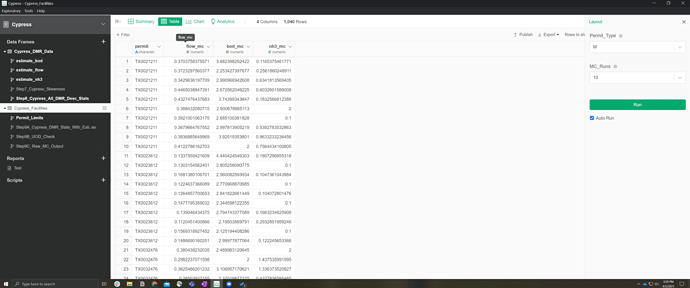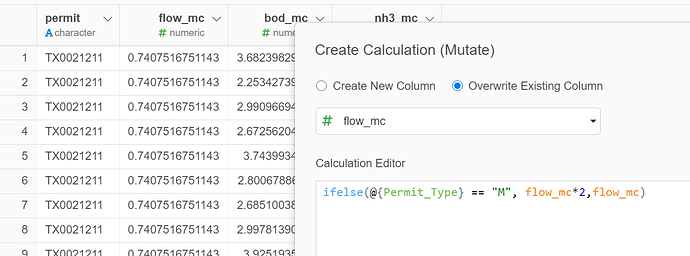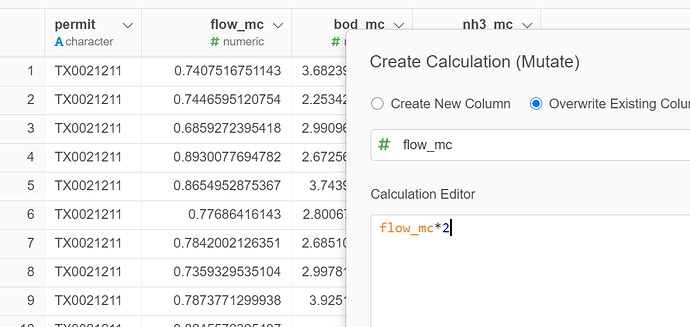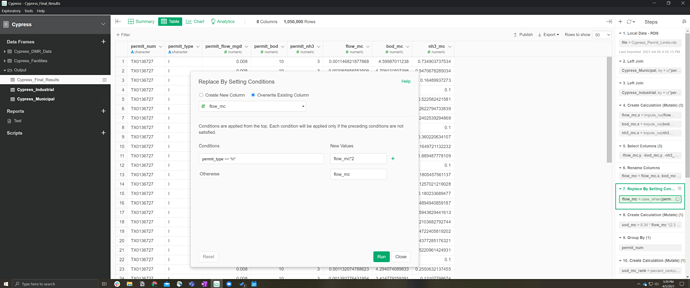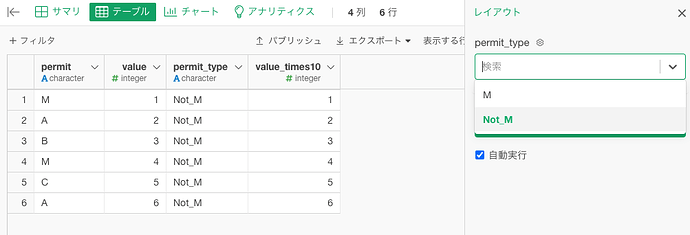The goal here is to double the flow_mc column if the “M” (municipal) permit type is selected:
When I use this statement:
it sort of works, but it only uses the value for the first row! How can I get the output to vary by row?
Thanks in advance 
24. Create Calculation (Mutate)' step has an error. Error : Problem with `mutate()` input `calculation_1`. x `true` must be length 1 (length of `condition`), not 1040. i Input `calculation_1` is `if_else(exploratory_env$Permit_Type == "M", flow_mc * 2, flow_mc).
FYI I tried two different work arounds:
- creating a new column for the calculation(same result) and
- using “if_else” instead, which returned the above error.
And I can confirm that when I leave out the conditional statement, it works as expected:
Update: well maybe parameters don’t work this way? I was able to come up with a work-around that used a join and the “Replace by Setting Conditions” tool and it worked great!
Hello @Stephanie_Brady
This problem seems to be caused by the following two issues.
- Exploratory parameters are treated as scalars(Single value).
- The
ifelse(test, yes, no) function returns the result of the decision by the number of the vector size passed as the test argument.
As a result of all this, the ifelse function in the mutate function is supposed to return an error.
If you expand the Exploratory parameter by the number of records in the data frame as shown below, it will work fine.
# make 2 cols in mutate function
# to expand from scalar parameter to vector
permit_type = @{permit_type}
## if you override col, set same col name
value_times10 = ifelse(permit_type == 'M', value*10, value)
The above tasks can be summarized and described as follows
ifelse(rep(@{permit_type},n()) == 'M', value*10, value)
If permit_type is not “M”, the value will not be multiplied.
If permit_type is “M”, value will be multiplied.
I apologize if my English is not good enough to properly understand the intent of your question.
Is this likely to solve your problem?
2 Likes
@sugiaki This is fantastic. Thank you so much for the thorough explanation and the excellent solution!
1 Like


